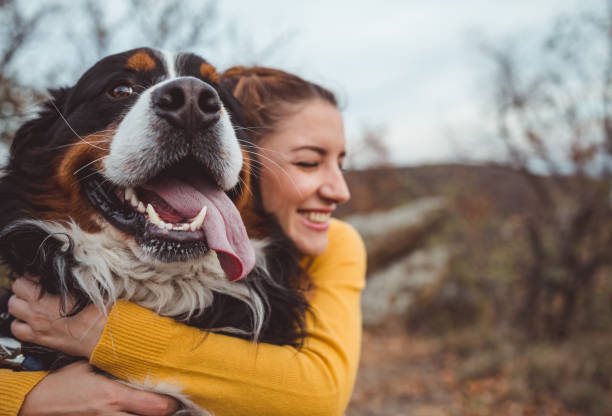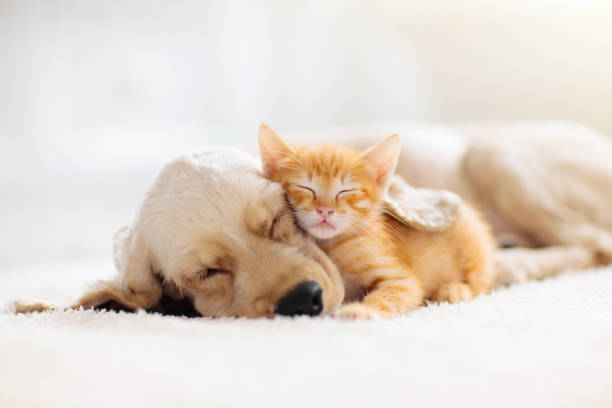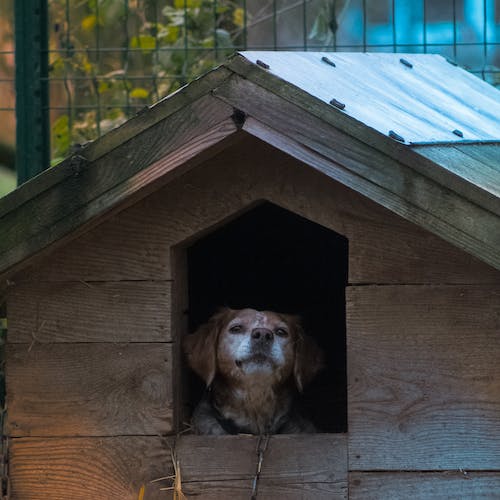‘The Cost of Owning a Dog or Cat: Know What to Expect’,
Introduction: Explain why budgeting for pet ownership is important and why understanding pet-care costs is beneficial

With pet ownership becoming more popular, it’s important to budget accordingly. Owning a dog or a cat is an incredibly rewarding experience, but the cost of pet-care can add up quickly. Being unprepared to take on these added expenses can cause a financial burden on families who are not expecting the additional costs.
Having an understanding of pet-care costs helps to prevent overspending and allows for more accurate budgeting. Ownership of a dog or a cat can feel like a luxury but it’s important to remember that owning a pet is a big responsibility. Unlike other purchases – like a new outfit or vacuum – it’s not something that you can simply replace when something goes wrong.
Before going ahead and buying a pet, it’s important to consider the many associated pet-care costs. These costs include the obvious costs such as food, toys, and grooming supplies, but you must also budget for less thought-of costs including vet visits, medicine and dog walking. Housing, leashes, and pet crates can also be expensive, especially if adopting an animal from a shelter.
Owning a dog or a cat requires dedication and commitment. A thorough budget should include expenses associated with the pet’s routine, as well as emergency and long-term care expenses. Understanding pet-care costs is a critical factor in the decision-making process before taking on pet ownership. With a thorough budget and some careful research, pet owners can ensure that they’re prepared for any surprise costs that can be associated with owning a dog or a cat.
Benefits of Owning a Dog/Cat: Outline the advantages of pet ownership with respect to health, socialization, and companionship

Owning a pet can be a rewarding experience that brings joy and companionship to many pet owners. Despite the associated costs, there are numerous benefits to owning a pet that often outweigh the monetary costs. Although there are several advantages of owning either a dog or a cat, this article outlines the benefits of owning both a dog and a cat with respect to health, socialization, and companionship.
When it comes to health, owning a pet comes with both physical and mental health benefits. Studies have concluded that in addition to providing companionship, pet ownership can reduce stress, improve immune systems, and even relieve certain allergies in children. Elderly pet owners in particular often report fewer doctor visits and lower cholesterol levels due to the stress-relieving power of owning a pet.
The socialization benefits of owning a pet cannot be overlooked. People with pets often stay more active, especially when taking their pet for a walk or playing with it in the yard. Additionally, pet owners are often more likely to interact with other pet owners, thereby increasing their social circles. Furthermore, pets are also an excellent way for people to meet new potential friends and dating partners.
Finally, the companionship benefits of owning a pet cannot be ignored. Pets often offer unconditional love and emotional support that only a pet can provide. Many pet owners report feeling a greater sense of purpose, connectedness, and satisfaction from owning a pet. Pets also provide a wonderful way to bond with family members, and pets often become cherished companion animals.
All in all, the advantages of owning a pet outweigh the associated pet-care costs. With regards to health, socialization, and companionship, owning a dog or a cat can have many positive benefits. Research continues to uncover more of the countless advantages of pet ownership, confirming that owning a pet is a win-win situation.
Pet-care Costs: Discuss the range of costs associated with owning a dog or cat, including veterinary costs, food, housing, grooming, and licensing

When considering pet ownership, the furry, four-legged friends that come to mind create a feeling of love and joy. But before acquiring a puppy or kitty, prospective pet parents should be aware of pet-care costs. Owning a dog or cat is an important and rewarding commitment, but it is also a financial investment. From veterinary bills to proper housing, there are a range of expenses associated with the responsibility of pet ownership.
Vet visits, vaccines, and spay/neuter costs can add up quickly. According to the American Society for the Prevention of Cruelty to Animals, owning a dog can cost upwards of $1,400 in its first year and an average of $1,000 annually after that. Cats demand less money in comparison – roughly, up to $1,000 in their first year and an average of $800 thereafter.
Food is an additional cost of pet parenthood. Those with a dog may purchase kibble, dishes, treats, and toys. Canned wet food and dry food are staples for cats, plus litter, litter boxes and perches for climbing and playing. Many of these purchases are one-time expenses and depending on the size of the pet, will last a few months or more.
Every pet requires housing, including beds, blankets, and toys. Dog owners should consider crate training and, potentially, a fenced-in yard for playing. Cats also require a place to rest with big, comfy cat beds. Plus, pet owners should factor in the regular purchase of flea, tick, and heartworm preventatives.
Grooming appointments are important for maintaining a pet's health. As a generality, dogs require monthly or bimonthly appointments to keep them clean and healthy. Cats may not require as much frequent grooming, although they still need monthly nail trims and baths every three months or so. There are also additional pet-care services available on the market, such as doggy day-care and professional pet-sitting.
In some areas, pet owners may be legally obligated to buy licensing for their animals. Owning a dog or cat comes with specific obligations like registering the pet with their respective local government for an annual fee.
As today’s responsible pet owners become evermore aware of these costs, both associated with the well-being of their furry companion and the monetary sums alike, it is important to weigh these factors into the decision-making process when considering acquiring a cat or a dog. Although there is a steep fee associated with acquiring and caring for a pet, the companionship of owning a dog or cat has a value that can not be measured in money.
Budgeting for Pet Ownership: Share tips for creating a pet budget and setting aside money for regular and unexpected costs

The idea of owning a pet is many people’s dream, but what about the costs? Whether you're a first-time pet parent or already have a furry friend, the costs of pet ownership are often overlooked in the excitement of bringing home a new companion. Without proper planning and budgeting, pet ownership can quickly spin out of control. Here are some tips for setting up a pet budget and keeping it on track.
First and foremost, have a plan. Owning a dog or a cat can be expensive, so do your research and understand exactly what kind of expenses you are committing to. The cost of food, annual vaccinations, flea treatment, and general vet bills can add up quickly. Additionally, older pets can be more prone to illness and injuries, so be sure to factor unexpected veterinary expenses into your budget.
After assessing your pet-care costs, you can start setting money aside. You may have enough money in an existing savings account, or if you need to open a new one, there are plenty of high-yield savings accounts that don't require minimum deposits or monthly fees. Allocating a fixed amount of money every month for pet-related expenses not only allows you to plan for the future, but it also prevents you from dipping into other areas of your budget.
If you need to make more room in your budget, you can always look at ways to save. Shopping around is great way to save money. Compare prices online to see who's offering the best deals, and don’t forget to check out discount websites. Also, if you’re looking for ways to save on vet bills, ask if there are any price breaks for services such as multi-year vaccination packages.
Finally, make sure you have the right pet insurance. Unexpected vet bills can be expensive, and having the right insurance coverage can save you thousands of dollars down the line.
Overall, setting up a pet budget and having a plan for pet expenses is essential for responsible pet ownership. With the right plan and budget in place, you can ensure that your fur baby is always taken care of.
Conclusion: Summarize the importance of researching and budgeting for pet ownership to ensure the best long-term care and happiness for your pet.

People often enjoy the concept of owning a pet; however, what many do not realize is the serious responsibilities and long-term financial implications of pet ownership. Owning a dog or a cat is a major commitment and should not be viewed as a temporary or disposable arrangement. Before bringing a new furry friend into your home, it is important to do your research and create a budgeting plan to ensure that your pet receives the best possible long-term care and loves a happy life with you.
Pet-care costs are no joke. We’ve all heard the horror stories of surprise veterinary bills and have seen just how expensive pet food can be. On the plus side, it is possible to plan budget friendly options and be prepared. Before bringing a new pet into your home, it is essential to research what type of food and supplies will be required and calculate the long-term financial costs associated with your new pet.
To make an educated decision on what type of pet may be best for you and your family, consider consulting with your veterinarian and researching a breed’s typical medical and dietary needs. Understand what types of medical services may be covered as part of an insurance plan, so that you are never stuck in an awkward financial situation due to a medical emergency. This will help you to create a pet care budget that is both responsible and realistic.
When all of the logistics are sorted out and the budgeting plan is created, the house is ready for a new friend- a pet! Brining a pet into the home is a very special experience and can bring joy to the entire family. To ensure the pet’s happiness and long-term well-being, it is important to not only research, but also stick to, a sustainable pet care budget. This will allow you to confidently provide your pet with the best possible care in the long-term.
